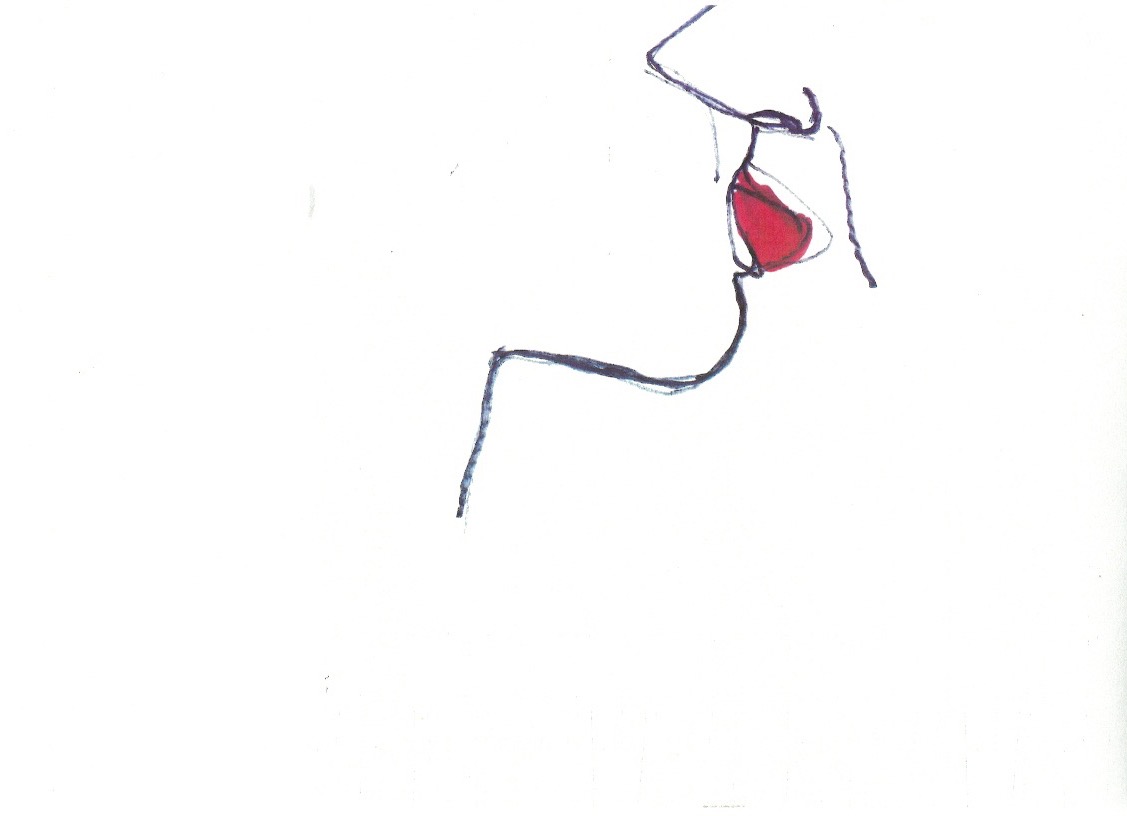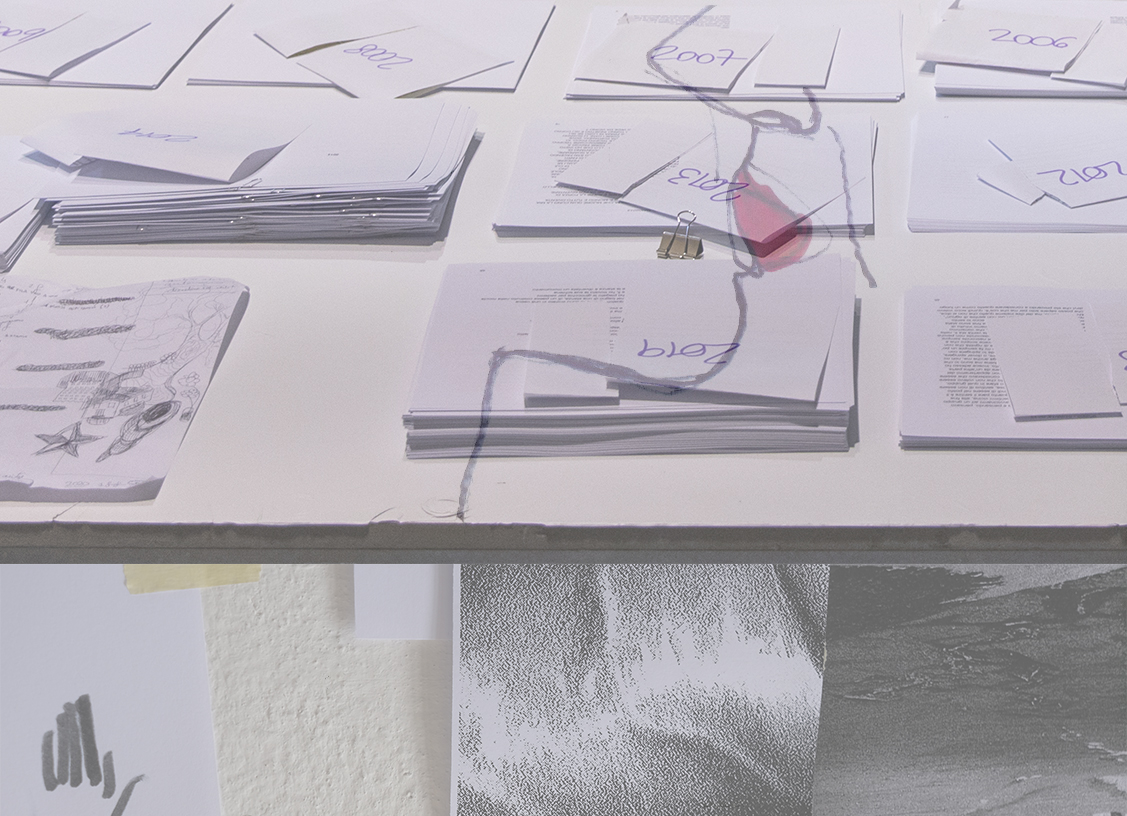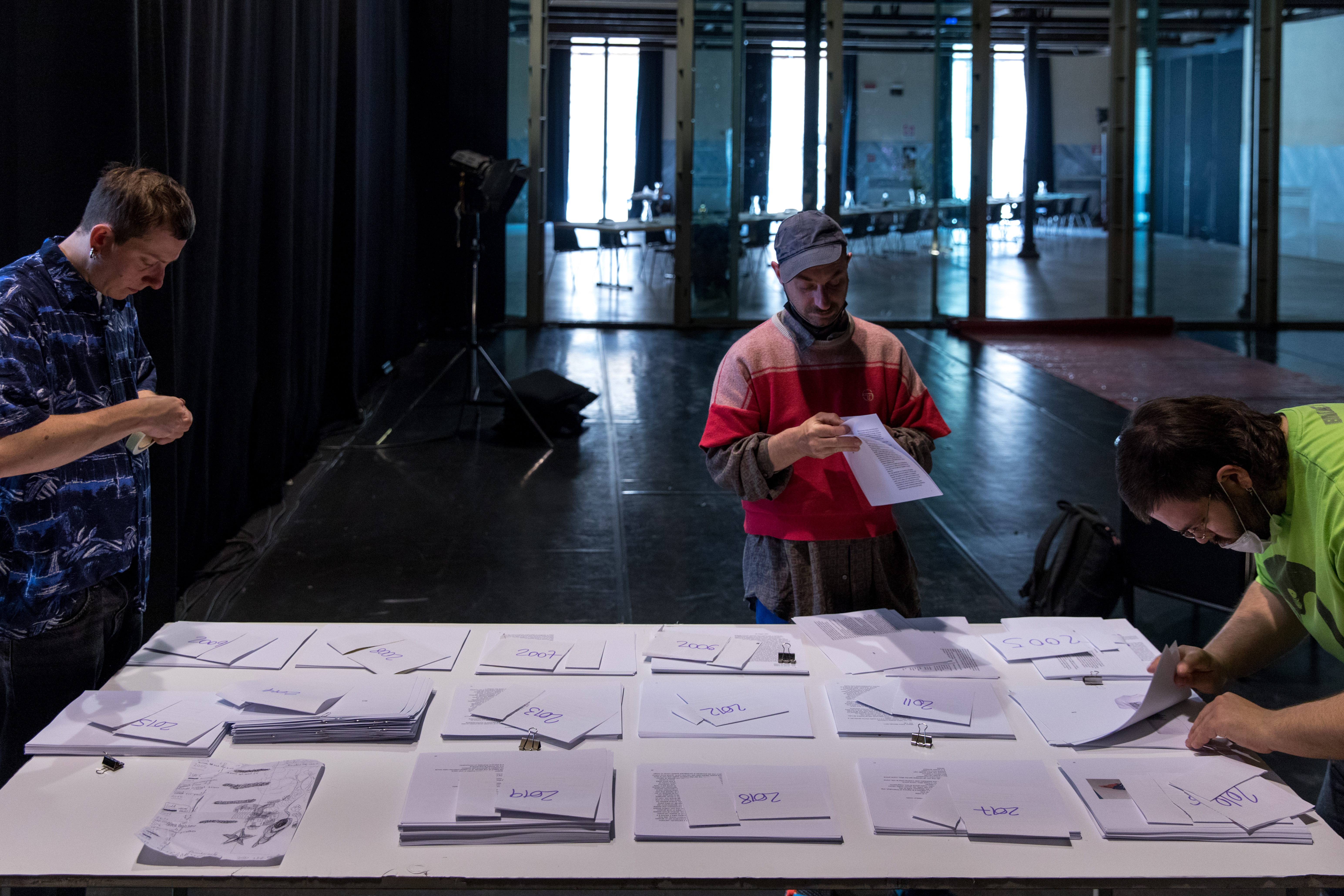D I C I O T T A N N I
simultaneously an arch of 18 years and being 18 years old, coming of age.
a work by F. De Isabella with Raffaele Tori sound F. De Isabella book F. De Isabella scene/research F. De Isabella, Raffaele Tori graphic design Alessandra De Isabella questions Giorgia Ohanesian Nardin translation Giorgia Ohanesian Nardin advice and development Giulia Traversi with the support of Centrale Fies - Art work space (TN), Associazione Culturale VAN (BO), La Conigliera (TV), Base (MI), Azienda Speciale Palaexpo - Mattatoio | Progetto Prender - si Cura (RM), Ateliersi (BO) thanks to Irene Pipicelli, Marco D'Agostin, Max Simonetto photo1. Roberta Segata courtesy Centrale Fies photo5. Pietro Bertora © 2022 Azienda Speciale Palaexpo
[ENG BELOW]
(...) invece adesso ho capito che non sono io a non andare bene ma sono io che devo spingere lo spazio perché accolga anche me. non mi piace l’idea che sia necessario spingere, o dover spingere, ma è anche vero che a volte si confonde lo spingere con l’affermare. affermare è una parola che mi fa sempre un po’ paura perché parla anche di una specie di rigidità che non mi appartiene rispetto al tema di me, invece scopro che è una bella parola, ma difficile da dire, che nasconde sempre qualcosa, ma qualcosa anche di bello, nasconde non perché non sia verità ma magari proprio perché la verità sta lì, nella domanda, costante, di quello che siamo, che vorremmo essere, che pensiamo di essere, che abbiamo intuito di essere. allora quando sono andat_ via alla fine sono stat_ solo/a, facendo un po’ finta di non esserlo.
(F. De Isabella, D I C I O T T A N N I, Italia, 2018)
(..) sapendo che ciò che racconterò sarà falsato da ciò che non avrò raccontato, da ciò che non ho filmato, da ciò che ho dimenticato, performato o deliberatamente censurato.
( Stéphane Riethauser, Madame, Svizzera, 2019, 93’ )
D I C I O T T A N N I nasce da una raccolta di parole che noi chiamiamo libro. Per sua natura questo libro non è fatto per essere letto in solitudine, in uno spazio privato, nè tenuto su uno scaffale, proprio perchè non è un libro. Necessita quindi dell’ingresso e della costruzione di uno spazio in cui possa essere condiviso. DICIOTTANNI è un insieme di fatti, un accadimento fisico, e anche un dejavu.
DICIOTTANNI non ha la possibilità di rimanere fisso, questa non è una scelta ma la manifestazione di una conseguenza, il risultato del tempo che sta passando, proprio ora, anche qui, in un esercizio di ascolto. Che cosa succede quando ci si ritrova improvvisamente a misurare le distanze, le parole che abbiamo usato, le forme che ci ritroviamo addosso. E’ una questione di appartenenza?
Che cosa è privato, che cosa è pubblico. Come rispondo alla morbosità dello sguardo. Questo lavoro nasce anche dall’esercizio quotidiano di scegliere che cosa far vedere e cosa no, di come rispondere alle domande di chi non si conosce. Che cosa va protetto.
Per fare chiarezza, sì, vi sto chiedendo di passare da qui. Il silenzio può essere sacro tanto quanto rinunciabile, scegliete voi che cosa ascoltare. E’ uno strumento che si accorda, ad ogni tocco.
DICIOTTANNI non ha un formato ma si muove su una linea. Decide ogni volta dove e come collocarsi negli spazi che incontra, nel momento in cui li incontra e con chi li abita. DICIOTTANNI lavora sul tempo, richiede tempo, parla della trasformatività del tempo e di tutto quello che si muove.
[ENG]
(...) and now I understand that it’s not that there is something wrong with me but that I need to push the space for it to welcome me too. I don’t like the idea that it is necessary to push, or needing to push, but it is also true that sometimes pushing is mistaken for affirming. affirming is a word that always scared me a bit because it talks about some kind of rigidity that doesn’t belong to me or the theme of me, instead I’m finding out that it’s a word that I like, but hard to say, that is always hiding something, but also something beautiful, hiding something not because it’s not the truth but maybe exactly because the truth is there, in the constant question, of what we are, what we would want to be, what we think we are, that we sense we are. so when I left in the end I stayed by myself, kind of pretending like I wasn’t.
( F. De Isabella, D I C I O T T A N N I, Italy, 2018 )
(..) knowing that what I will tell will be distorted by what I will not have told, by what I have not filmed, by what I have forgotten, performed or deliberately censored.
(Stéphane Riethauser, Madame, Switzerland, 2019, 93 ')
D I C I O T T A N N I is born out of a collection of words that we call book. Because of its nature, this book is not meant to be read in solitude, in a private space, or kept on a shelf, precisely because it isn’t a book. It requires the entering and building of a space in which it can be shared. DICIOTTANNI is a series of facts, a physical happening; it’s also a dejavu.
DICIOTTANNI does not contemplate the possibility of remaining fixed, this is not a choice but the emerging of a consequence, the result of time passing, right now, here too, in a practice of listening. What happens when one finds oneself suddenly measuring distances, the words we’ve used, the shapes we find ourselves in. Does it have to do with belonging?
What is private, what is public. How do I reply to the morbosity of the gaze. This work is also born from the daily practice of choosing what to show and what not to show, of finding ways to answer questions that come from someone you don’t know. Of looking at needs protection.
To be clear, yes, I am asking you to stop by. Silence can be sacred as much as it can be renounceable, it’s up to you to decide what to listen to. It’s an instrument that is tuning, with every touch.
DICIOTTANNI doesn’t have a format, rather it moves on a line. Each time it decides where to locate itself in the spaces it meets, in the moment in which it meets them and with who inhabits them. DICIOTTANNI works on time, requires time, deals with the transformative nature of time and everything that moves.




